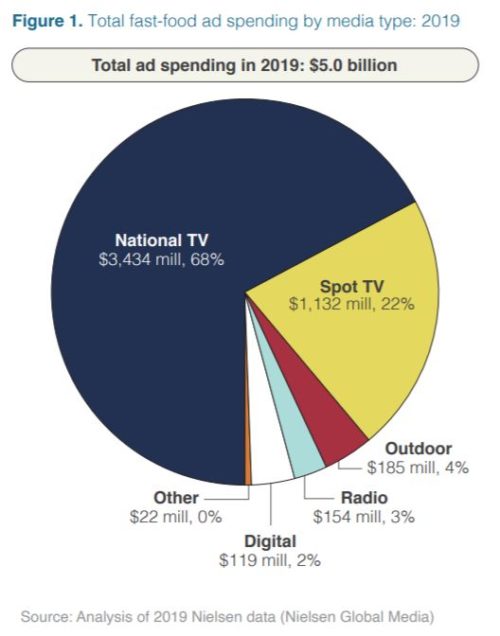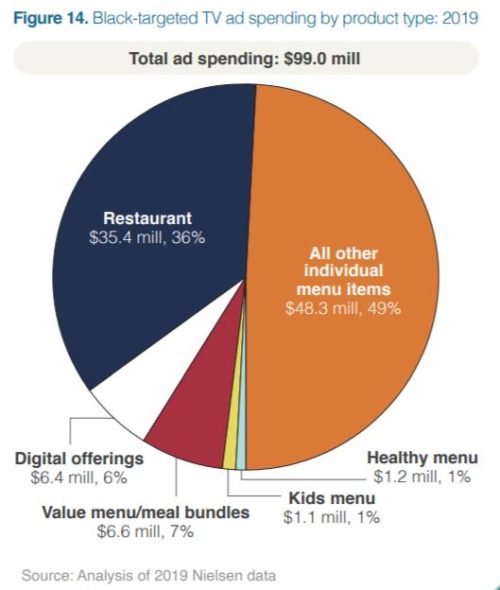Reading about Afghanistan sent me back to what I wrote about food aid to that country in my book, Safe Food: The Politics of Food Safety (University of California Press, 2003, revised edition 2010: pages 260-265). The World Food Programme has declared a hunger emergency in Afghanistan that affects a third of the population, 14 million people. This excerpt from my book illustrates a small part of the history of the current Afghanistan tragedies.
A New Emphasis for Food Security: Safety from Bioterrorism

On October 13, 2001, New York Times photographer James Hill took this photograph of U.S. “Humanitarian Daily Rations” dropped over Afghanistan. The photograph appeared in the Week in Review section on October 21. Mr. Hill said the food packets were available in local markets for the equivalent of 60 cents each (Photographer’s Journal: War is a Way of Life, November 19, 2001)…©2001 New York Times Photo Archive. Used with permission.)
Prior to the terrorist attacks [of September 2001], food security in the United States had a relatively narrow meaning that derived from the need to establish criteria for welfare and food assistance. In the 1980s, the U.S. government expanded its definition of “hunger” (as a problem requiring food subsidies or donations) to include involuntary lack of access to food—the risk of hunger as well as the physical experience. By this definition, food security came to mean reliable access to adequate food.[1]
The international definition is broader, however. In 1948, the United Nations adopted the Universal Declaration on Human Rights, which said, “Everyone has the right to a standard of living adequate for the health and well-being of himself and of his family, including food, clothing, housing and medical care and the necessary social services, and the right to security in the event of unemployment, sickness, disability, widowhood, old age or other lack of livelihood in circumstances beyond his control.”[2] Many interpret this provision to mean that people have a right to food security, in this case encompassing five elements: (1) reliable access to food that is not only (2) adequate in quantity and quality but also (3) readily available, (4) culturally acceptable, and (5) safe. With respect to safety, the Geneva Convention of August 1949, an international agreement on the protection of civilians during armed conflict, expressly prohibited deliberate destruction or pollution of agriculture or of supplies of food and water. These broader meanings derived from work in international development, where it was necessary to distinguish the physical sensation of hunger (which can be temporary or voluntary), from the chronic, involuntary lack of food that results from economic inequities, resource constraints, or political disruption.[3]
The significance of the lack-of-access meaning of food security is evident from a health survey conducted in a remote region of Afghanistan just a few months prior to the September 2001 attacks. Not least because of decades of civil strife, Afghanistan is one of the poorest countries in the world, and its health indices are dismal: a life expectancy of 46 years (as compared to 77 years in the United States) and an infant mortality rate of 165 per 1,000 live births (as compared to 7).[4] At the time of the survey, the United Nations World Food Programme estimated that 3.8 million people in Afghanistan lacked food security and therefore required food aid. Investigators examined the health consequences of this lack and found poor nutritional status to be rampant in the population and a contributing factor in nearly all of the deaths that occurred during the survey period. Half of the children showed signs of stunted growth as a result of chronic malnutrition. Scurvy (the disease resulting from severe vitamin C deficiency) alone accounted for 7% of deaths among children and adults. Because visible nutrient deficiency diseases like scurvy are late indicators of malnutrition, the investigators viewed the level of food insecurity as a humanitarian crisis—less serious than in parts of Africa, but worse than in Kosovo during its 1999 upheavals.[5] After October 2001, when bombing raids led to further displacement of the population, the United Nations increased its estimate of the size of the food insecure population to 6 million and predicted that the number would grow even larger as humanitarian aid became more difficult to deliver.
In part to alleviate shortages caused by the bombings, resulting dislocations, and the collapse of civic order, the United States began a program of food relief through airdrops. The packages, labeled “Food gifts from the people of the United States of America,” contained freeze-dried lentil soup, beef stew, peanut butter, jelly, crackers, some spices, and a set of plastic utensils, and provided one day’s food ration for an adult–about 2,200 calories. Beginning in October 2001, airplanes dropped about 35,000 food packages a day. The quantities alone suggested that their purpose had more to do with politics than food security.[6] A British commentator did the calorie counts:
If you believe, as some commentators do, that this is an impressive or even meaningful operation, I urge you to conduct a simple calculation. The United Nations estimates that there are 7.5 [million] hungry people in Afghanistan. If every ration pack reached a starving person, then one two hundredth of the vulnerable were fed by the humanitarian effort on Sunday.…But the purpose of the food drops is not to feed the starving but to tell them they are being fed. President Bush explained on Sunday that by means of these packages, “the oppressed people of Afghanistan will know the generosity of America and our allies.”[7]
Even with a possible exaggeration of the extent of food insecurity, this comment suggests that food aid is a complicated business, and at best a temporary expedient. One problem is getting dropped food to the people who need it most. The Figure illustrates the fate of some of the food aid packages. As often happens, enterprising people collect the packages and sell them on the open market; this gets the food into public circulation, but at a price. In this instance, the packages also encountered unexpected safety hazards. The Pentagon warned that the Taliban might try to poison the packages or spread rumors of poisoning as a means of propaganda against the United States, but Taliban leaders denied this accusation: “No one can be that brutal and ignorant as to poison his own people.”[8] The packages themselves presented hazards. They were packed in specially designed plywood containers that could be dropped from 30,000 feet without breaking, but several landed in the wrong place and destroyed people’s homes. Children sent to collect the food packages died or lost limbs when they ran across fields planted with land mines. While the food drop was in progress, the political situation made it impossible for food aid to get into the country through conventional routes. Later, warlords stole shipments, and riots broke out when supplies ran out.[9] Political stability depends on food security, and food security is inextricably linked to political stability. Without such stability, food aid alleviates a small part of the humanitarian crisis—better than nothing, but never a long-term solution.[10]
Would increasing the amount of food aid alleviate the crisis? Former Senator George McGovern, U.S. ambassador to the World Food Programme said, “If these people have nourishment for healthy lives, this is less fertile territory for cultivation by terrorist leaders.” Bringing in another issue germane to this book, he said that the war on hunger in Afghanistan and elsewhere cannot be waged without biotechnology: “It is probably true that affluent countries can afford to reject scientific agriculture and pay more for food produced by so-called natural methods. But the 800 million poor, chronically hungry people of Asia, Africa and Latin America cannot afford such foods.”[11] As we have seen, biotechnology is still a remote solution to food security problems, and it is difficult to imagine how it might alleviate immediate food shortages in Afghanistan.
References
[1] Andrews MS, Prell MA, eds. Second Food Security Measurement and Research Conference, Volume II: Papers. USDA/ERS, July 2001.
[2] United Nations. Universal Declaration of Human Rights (Adopted by the U.N. General Assembly, December 10, 1948). Reprinted in JAMA 1998;280:469–470.
[3] Oshaug A, Eide WB, Eide A. Human rights: a normative basis for food and nutrition-relevant policies. Food Policy 1994;19:491–516. Drèze J, Sen A. Hunger and Public Action. Oxford: Clarendon Press, 1989.
[4] The World Factbook–United States, 2001. Central Intelligence Agency. Online: www.cia.gov/cia/publications/factbook/index.html.
[5] Assefa F, Jabarkhil MZ, Salama P, et al. Malnutrition and mortality in Kohistan district, Afghanistan, April 2001. JAMA 2001;286:2723–2728. Ahmad K. Scurvy outbreak in Afghanistan prompts food aid concerns. Lancet 2002;359:1044.
[6] Perlez J. Individual meals from the sky. NYT, October 8, 2001:B3.
[7] Monbiot G. Folly of aid and bombs. Guardian (London), October 9, 2001. Online: www.guardian.co.uk.
[8] Hungry for peace: with winter near, starving Afghans need more than air-dropped relief. San Francisco Chronicle, October 26, 2001:A1,A18. Shanker T, Schmitt E. U.S. warns Afghans that Taliban may poison relief food. NYT, October 25, 2001:B2
[9] Dao J. Sergeant designs a better box for dropping food to Afghans. NYT, October 10, 2001:B3. Waldman A. Food drops go awry, damaging several homes. NYT, November 21, 2001:B2. Becker E. Even with roads still open, security fears are choking the flow of food aid. NYT, November 30, 2001:B4. Chivers CJ, Becker E. Aid groups say warlords steal as needy wait. NYT, January 4, 2002:A1,A15.
[10] Nestle M, Dalton S. Food aid and international hunger crises: the United States in Somalia. Agriculture and Human Values 1994;11(4):19–27. Lewis P. Downside of doing good: disaster relief can harm. NYT, February 27, 1999:B9. McKinlay D. Refugees left in the cold at “slaughterhouse” camp. Guardian (London), January 3, 2002. Gall C. Pleas for food, help and a way out. NYT, January 20, 2002:A15.
[11] Truelsen S. Food aid and the war on terrorism. The Voice of Agriculture. American Farm Bureau Federation, November 5, 2001. Online: Online: www.fb.com.






